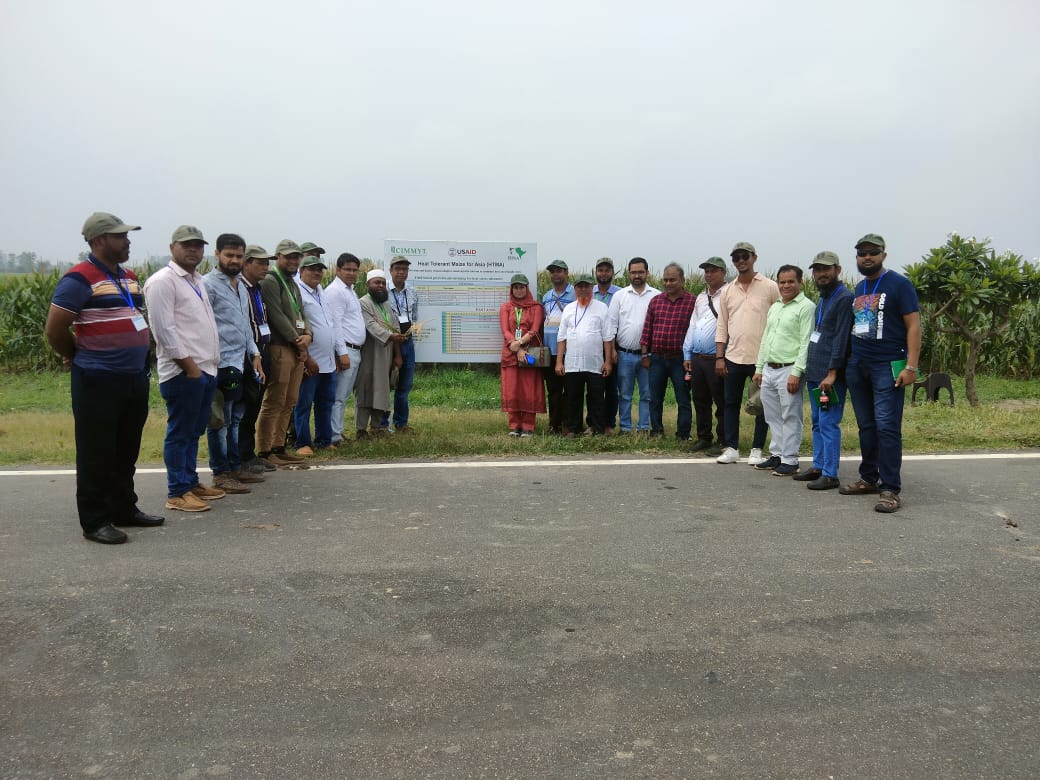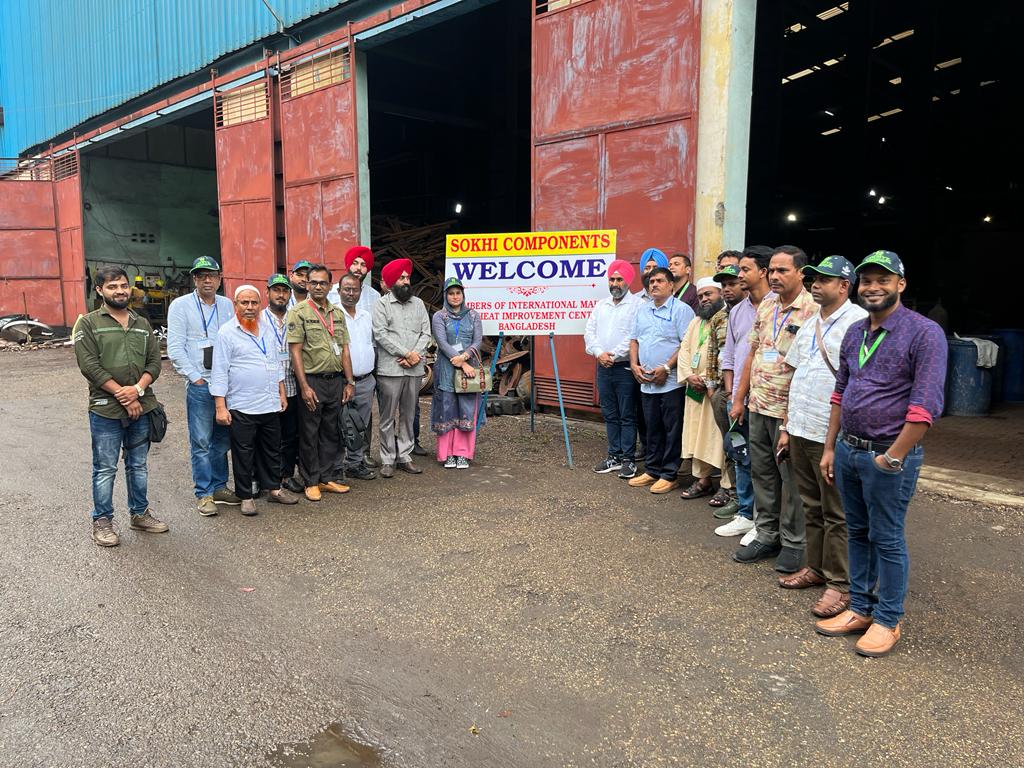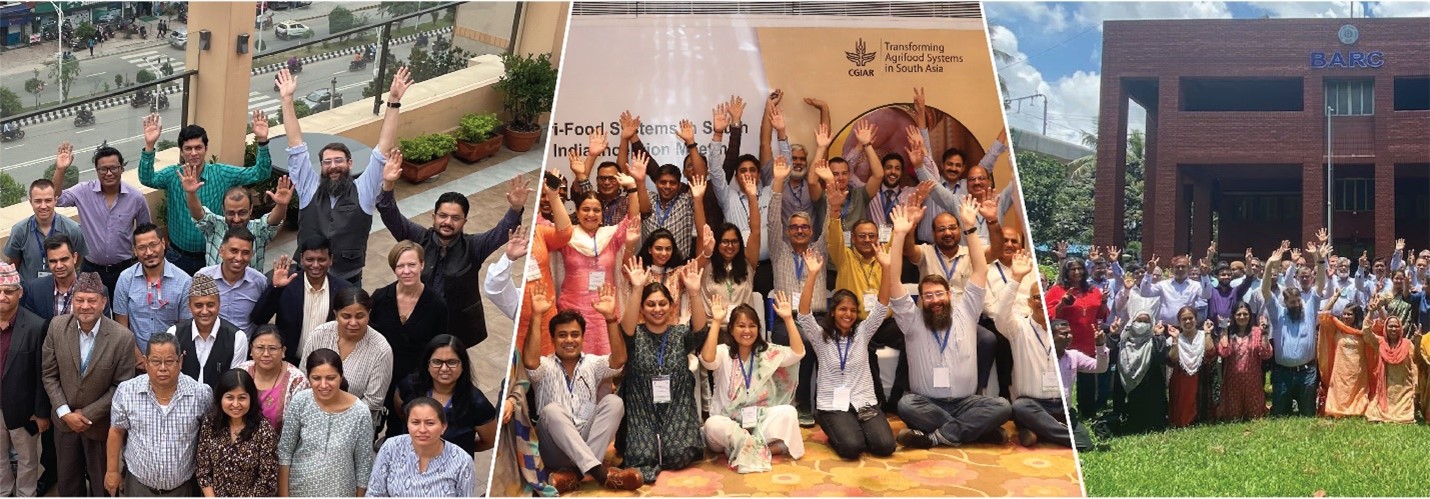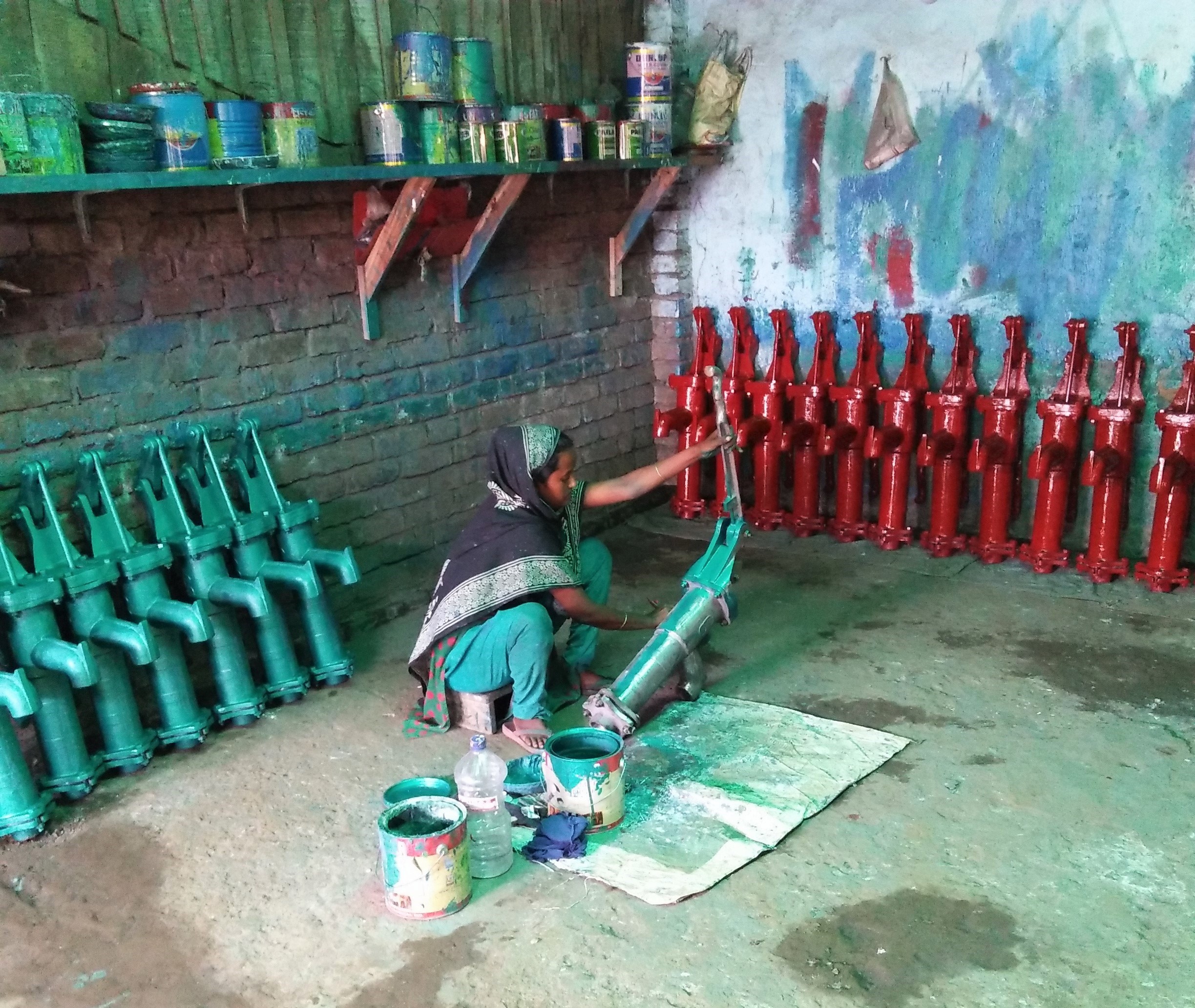As geographical neighbors, Bangladesh and India share many characteristics in terms of land, weather, and food production. Because of these similarities, the Feed the Future Cereal Systems Initiative for South Asia-Mechanization Extension Activity (CSISA-MEA) organized a series of exposure visits to India for Bangladeshi farmers and other agricultural stakeholders to establish market linkages, provide access to financial and technical advice.
The CSISA-MEA, funded by the United States Agency for International Development (USAID) works to increase the usage of agricultural machinery to benefit farmers by increasing their productivity and efficiency. The Activity works with several stakeholders, including agriculture-based light engineering (ABLE) enterprises, dealers, and machinery solution providers (MSPs).
Over the course of the activity, a significant lesson learned is that both groups, the hosting party and the visiting party, benefit from exposure visits.
CSISA-MEA organized two international exposure visits to India in July 2023. A total of 34 participants in two cohorts visited India, 18 workers from Faridpur and Cox’s Bazar, and 16 from Bogura and Jashore.

CSISA-MEA arranged the visits with the objective to familiarize Bangladesh ABLE enterprises with modern agri-machinery manufacturing and improve their working practices. The visits covered factories, ABLE workshops and foundries in Punjab, including Amargarh, Bamala, and Ludhiana, areas where India’s agriculture mechanization is most notable, and incorporated public and private sector companies, and academia including LANDFORCE, M/S Dasmesh Mechanical Works, Panesar Agriculture Works Pvt. Ltd., Sokhi Manufacturing Ltd., the Borlaug Institute for South Asia, and National Agro Industry.
Learnings from the exposure visit
The exposure visits have emphasized the importance of systematic line production for machinery and spare parts manufacturing to ensure efficiency and consistency in output. Quality control has been highlighted as a non-negotiable aspect, and the significance of delivering reliable and high-quality products. Using natural light and ventilation systems showcased the potential for environmentally friendly production facilities.
The visits also highlighted how maintaining proper occupational health and safety measures ensures the well-being of the workforce along with a gender inclusive environment in the agri-machinery factories. The factories have a significant female workforce, an eye-opening sight for the ABLE owners of Bangladesh.
These exposure visits have helped equip ABLE owners with invaluable insights and strategies for success in their agricultural machinery businesses, including building connections among themselves, such as that between two ABLEs from Jashore, Bangladesh to facilitate the production and supply of the fodder chopper–demonstrating the potential for cooperation to expand market reach.
Reflections from the visits
The trip to meet their Indian counterparts provided CSISA–MEA ABLE owners with invaluable insights and knowledge, with their unanimous feedback reflecting the profound impact of the visits, which they deemed truly eye-opening. Encouragingly, since their return, each ABLE enterprise has prepared action plans, taking proactive steps to implement the new techniques and business strategies they gained during their visit.
“I can’t express how thrilled I am to have unlocked the secrets behind the exceptional quality of Indian machines and spare parts. It’s not just a technical upgrade, it’s a commitment to quality products,” said Md. Ashraf Hosen, owner of M/S Ashraf Machinery & Akmol Engineering Workshop.

Another visitor, Md. Iqbal Hosen, proprietor of Titas Moulding & Engineering Works, said, “I found discovering new innovations very exciting, especially the core-making process, the mechanical mold-making process to reduce production costs, appropriate charge calculation techniques and induction furnaces. I’m determined to apply these things in my foundry, to improve the quality of the products and reduce production costs.”
Sarkar Agro-Engineering & Multiple Works in Bangladesh has displayed a commitment to implementing the key takeaways of the exposure visit to India. The owners have ensured natural light and ventilation in their production facilities, creating a more conducive and eco-friendlier working environment for staff. They have also installed a customized lathe machine, painting every part of a machine before assembling it, and manufacturing mini tractors, all because of their exposure visit.
CSISA–MEA staff have also taken something from the trips, including feedback to include demonstrations of forging machines in future visits to further extend the workforce’s technical knowledge. There are plans to visit local spare parts markets during the next expedition to provide participants with a broader understanding of market dynamics, while visits to solar power and battery-operated machinery companies would provide an opportunity to witness sustainable technologies in action.

 Climate adaptation and mitigation
Climate adaptation and mitigation 